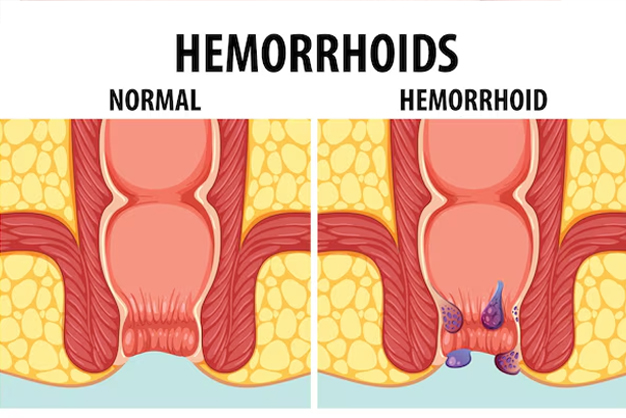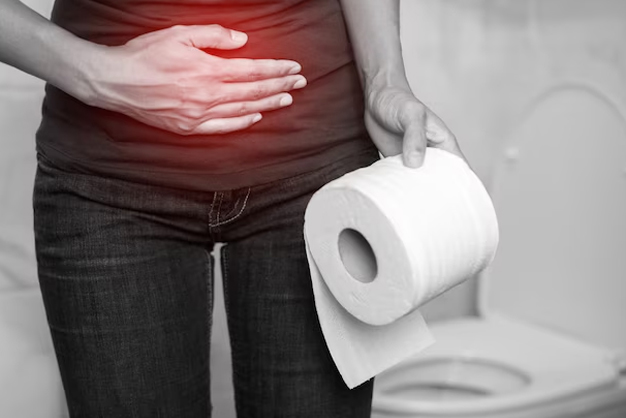A healthy digestive system typically means having regular bowel movements to help flush out waste and toxins from the body. While the frequency of pooping can vary greatly from person to person, going without a bowel movement for an extended period can be a cause for concern.
Constipation defined as infrequent or difficult bowel movements doesn’t have a strict timeline because digestive habits are influenced by diet, gut health, activity levels, and individual routines.
However, if you haven’t had a bowel movement in a week despite eating normally, it might be time to consider what’s going on. To understand more about this issue, we spoke with experts who helped us know more about the issue.
Health Risks Of Not Pooping Regularly
Constipation might seem like a minor issue at first, but it can be your body’s way of signalling that something isn’t right. While occasional constipation is fairly common, long-term or chronic constipation can lead to a range of uncomfortable and sometimes serious health complications.
To understand more, we spoke with Dr Piyush Mishra, General Physician & Immunisation Officer, North East District, New Delhi. He explains that constipation is typically defined as having fewer than three bowel movements per week, or experiencing difficulty passing stool over several days. If left untreated, it can result in the following complications:
1. Hemorrhoids
Straining during bowel movements increases pressure on the veins in the rectum, leading to painful, swollen hemorrhoids that can cause bleeding and discomfort.

2. Anal Fissures
Passing hard or large stools can cause small tears in the lining of the anus, known as fissures, which often lead to sharp pain and visible bleeding.
3. Fecal Impaction
Severe cases of constipation may result in hard, dry stool becoming stuck in the colon or rectum. This condition often requires medical assistance for removal.
4. Rectal Prolapse
In extreme cases, chronic straining can lead to a portion of the rectum pushing out through the anus, a condition that typically needs surgical intervention.
5. Bloating and Abdominal Discomfort
Chronic constipation often results in bloating, stomach cramps, and a persistent feeling of fullness that can impact overall quality of life.
Don't Miss:Yoga For Constipation: 6 Poses That Can Help You Poop
Home Remedies To Relieve Constipation
Many cases of constipation can be managed at home with lifestyle changes and natural remedies. Here are some effective ways to get your digestion back on track:
1. Boost Your Fibre Intake
Include more fibre-rich foods in your diet such as fruits (like apples, pears, and prunes), vegetables, whole grains, and legumes. Fibre adds bulk to your stool and helps it move more easily through the digestive tract.
2. Stay Well-Hydrated
Drinking enough water throughout the day is key to preventing hard, dry stools. Aim for at least 8 glasses daily, or more if you are physically active or live in a hot climate.

3. Start the Day with Warm Liquids
Drinking warm water or herbal tea first thing in the morning can help stimulate your bowels and ease constipation.
4. Add Probiotics to Your Diet
Foods like yogurt, kefir, and other fermented items are rich in good bacteria that support gut health and promote regular bowel movements.
5. Create a Bowel Routine
Try visiting the bathroom at the same time every day, ideally after a meal. Establishing a routine can help train your body to have regular bowel movements.
Don't Miss:Menopause At 40: Symptoms, How To Manage, And More
Constipation Warning Signs You Shouldn't Ignore
Constipation may seem minor, but if left unaddressed, it can lead to serious health issues. Here are some common warning signs to look out for that indicate chronic constipation:
1. Infrequent Bowel Movements
Going fewer than three times a week is a red flag that your digestive system may not be working efficiently.
2. Hard or Lumpy Stools
Dry, pebble-like stools are a typical sign of constipation and can cause pain during bowel movements.
3. Straining While Pooping
If you regularly need to push hard to pass stool, it may indicate an underlying issue like poor diet, dehydration, or slow gut motility.
4. A Sense of Incomplete Evacuation
Feeling like you haven't fully emptied your bowels even after going is a common symptom of constipation.
5. Bloating and Abdominal Pain
Persistent bloating, cramping, or a heavy feeling in the stomach can be linked to built-up stool in the intestines.
6. Blood in the Stool or Painful Rectum
Straining can lead to small tears (anal fissures) or hemorrhoids, which may cause bleeding and discomfort.
7. Loss of Appetite or Nausea
When the digestive system slows down, it can lead to a buildup of waste, making you feel full or nauseous.
When Is Not Pooping For Days A Sign Of Something Serious?
While constipation is usually temporary and can often be managed with dietary and lifestyle changes, it becomes a cause for concern when it turns chronic or doesn't improve with usual remedies.
To understand when constipation might be a red flag, we spoke to Dr Samhita Ullod, Assistant Professor, Department of Basic Principles, SDMIAH, Bengaluru. She explains, “When constipation isn’t related to diet or routine changes, it may point toward more serious conditions such as bowel obstruction, colon disease, or fecal impaction.”
Possible Underlying Health Concerns
- Bleeding with hard stools may indicate hemorrhoids, fissures, anal polyps, or in rare cases, colorectal cancer.
- Constipation with bloating and abdominal pain could signal a perforation in the digestive tract.
- Vomiting along with constipation may suggest an intestinal blockage.
- In some cases, neurological disorders like Parkinson’s disease, multiple sclerosis, or autonomic neuropathy can turn into chronic constipation.
Brushing off constipation or relying too heavily on laxatives can worsen the problem over time. As Dr Piyush Mishra puts it, “Constipation isn’t just a minor discomfort, it can be a sign of a deeper health issue if it continues unchecked. The important thing is to pay attention to your body, adopt healthier dietary and lifestyle habits, and seek medical guidance when necessary.”
Keep reading Herzindagi for more such stories.
Credits: Freepik

Take charge of your wellness journey—download the HerZindagi app for daily updates on fitness, beauty, and a healthy lifestyle!
Comments
All Comments (0)
Join the conversation